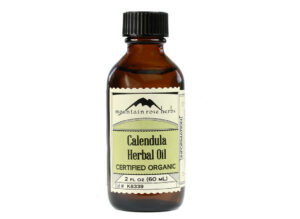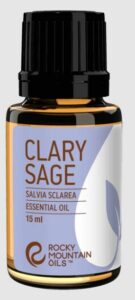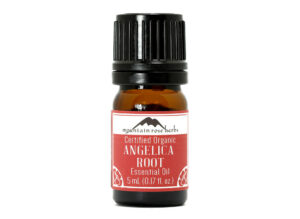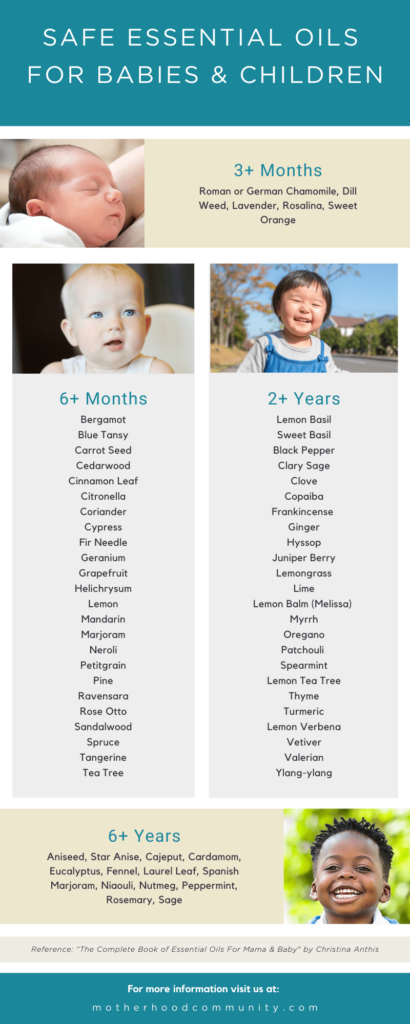Overview
Did you know that as many as 6% of women aged 15 to 44 years old in the US experience fertility issues and 12% have difficulty carrying the baby to full term? (1)
But infertility isn’t just a woman’s problem. Male infertility factors are identified in about 35% of couples struggling to conceive. (1)(2)
Things can get frustrating when you’re TTC (trying to conceive). That’s why it’s nice to get some fertility support from your partner, family, and friends.
You might also get the boost you need from fertility essential oils.
Many oils may help promote ovulation and boost sperm count. Others may also help during IVF (in vitro fertilization) and augment other therapies you might be undergoing.
But be warned that not all essential oils are good for both fertility and pregnancy. Some may boost fertility but can be harmful during pregnancy.
So, which of these oils are good for fertility and which ones should be avoided? You’ll find our recommendations below.
What Oil Helps You Get Pregnant?
Are you planning to have a baby and looking for essential oils to boost fertility?
If you’re having fertility issues, you may get a boost from some of these best essential oils to improve your reproductive health:
Frankincense Oil




- It’s also known as the “king of oils.”
- Frankincense oil may help support immunity and reduce inflammation. (10)
- It may increase sperm count, density, and motility (how fast the sperm moves). (10)
- You may use this with a diffuser.
Safety & Caution:
- May cause skin sensitization after exposure to sunlight
- It’s safe to use during pregnancy
- It’s safe for children 2+ years old
Sandalwood Oil




- It may increase libido. (13)
- It’s also considered an aphrodisiac for women. (13)
- Diluted sandalwood oil may be applied directly to your skin as a massage oil.
- You can also use this oil in a diffuser.
Safety & Caution:
- Safe during pregnancy
- Safe with children 6+ months old
- May react with certain drugs; consult your doctor before use
Amrita Lavender Oil



- This oil may help you relax as it can lower your cortisol levels, the main stress hormone. (12)
- It can help promote better sleep. (12)
- It may also help boost your endocrine system. (8)
- You can use this as a spray on your pillowcases, diluted into massage oil, or with a diffuser.
Safety & Caution:
- May cause skin sensitization
- Safe for use during pregnancy
- Safe for use with children 3+ months old
Calendula Oil


- It may help restore and maintain your reproductive system’s health. (4)
- It can help reduce painful menstrual cramps. (5)
- This oil may also help reduce the risk of ovarian cysts and uterine congestion. (4)
- You may use this as a skin patch (diluted with a carrier oil) or with a diffuser.
Safety & Caution:
- Use with caution if you have allergies to purple coneflower, feverfew, and chamomile
- Consult a doctor if you’re pregnant, breastfeeding, or using any medications
- Unsafe for children below 6 years old
Clary Sage Essential Oil


How Does Clary Sage Help Fertility?
- This oil can help balance the levels of estrogen in your body. This hormone is vital for conception. (7)
- It may help strengthen your womb and uterus. (7)
- It can also be an aphrodisiac. (7)(8)
- You can dilute it with your chosen carrier oil to massage it to your skin.
Safety & Caution:
- May cause skin sensitization
- This oil may not be appropriate to use once you’re pregnant because it might cause uterine contractions. (9
- Don’t use while drinking and driving
- Safe for children 2+ years old
Eucalyptus Oil


- This oil may soothe your mind and help in promoting fertility. (8)
- It may help improve sperm mobility and vitality. (2)
- It may also help improve IVF outcomes. (2)
- It’s used with a diffuser or as massage oil (make sure it’s diluted).
Safety & Caution:
- Don’t use with children below 6 years old
- May cause CNS (central nervous system) and breathing problems in younger children
- Unsafe for use during pregnancy
Geranium Oil


- This oil may help with estrogen production. (11)
- It may also help boost your mood and reduce your anxiety. (11)
- It may help with endometriosis therapy. (8)
- It may be used in a room diffuser or applied to your skin with a cream.
Safety & Caution:
- May cause skin sensitization
- Safe for children 6+ months old
- Safe for pregnancy
Ylang-Ylang Essential Oil


- It can help balance hormones and ease menstrual cramps. (14)
- It can also boost your mood and induce euphoric feelings. (15)
- It may reduce sexual anxiety. (15)
- It may also have some aphrodisiac qualities. (8)(14)
- You can use this with a diffuser.
Safety & Caution:
- May cause skin sensitization
- Safe to use during pregnancy
- Safe with children 2+ years old
- Excessive use may cause headaches and nausea
Angelica Oil

- It can promote relaxation and may help reduce stress so you can enjoy intimate time with your partner. (3)
- It may also help boost your sexual organs. (3)
- This oil is used with a diffuser.
Safety & Caution:
- Avoid during pregnancy
- It’s a phototoxic oil that can cause light sensitivity
- Unsafe for children below 6 years old
Citrus Essential Oil (Grapefruit, Orange, and Lemon)
Sweet Orange Oil




Grapefruit Oil


Lemon Oil


- This oil can help you relax. (6)
- Its calming effect can help you deal with anxiety which might negatively impact fertility. (6)
- It can also improve your mood and increase your energy. (6)
- It may be dispersed into the air using a room diffuser.
Safety & Caution:
- It’s a phototoxic oil that can cause skin irritation
- Safe for use during pregnancy
- Safe for use with children 6+ months old
What Are Essential Oils?
These oils are the highly concentrated extract of a plant’s natural aromatic compounds.
Depending on the plant source, the oil can be extracted from the flowers, roots, stems, leaves, bark, or even seeds.
You can also mix various oils to create a new fragrance.
How Do You Use Essential Oils For Fertility?
- With an oil diffuser
- Sprayed on your bed and pillowcases
- As a sensual massage oil
- In your bath
How to Identify Good-Quality Essential Oils
Purity
- It’s important to make sure that the oils you’re using are free from contaminants, irritants, toxic chemicals such as pesticides, and other impurities.
- Only use certified organic, 100% therapeutic grade essential oils.
Potency
- It’s the measure of a product’s concentration and effectiveness.
Here’s a handy infographic to help you choose:

How Essential Oils Can Support Fertility
Stress Reduction & Immunity
- By reducing the main stress hormone, cortisol, essential oils may reduce stress. (12)
- These oils may also provide immunity and fertility support. (8)
Toxic Load Reduction
- These essential oils may reduce the toxins in your body to promote wellness, including in your reproductive organs. (7)
- They may be used to detox your kidneys and liver. (8)
- They may also provide cellular support and help repair damaged cells in some parts of your body. (8)
Hormone Regulation
- Hormonal imbalances may lead to PCOS (polycystic ovary syndrome). (3)
- It’s among the most common reasons for infertility in women. (8)
- Some essential oils may help you achieve hormonal balance so your body can prepare for the coming baby. (11)
- Some may help promote estrogen and progesterone levels in your body. (8)
- Other oils may also increase your partner’s testosterone levels. (2)
Increasing Libido
- There are essential oils with aphrodisiac properties that can help increase libido in both men and women. (13)
- Some of these oils are ylang-ylang, sandalwood, clary sage, and lavender. (8)
Free Radical Damage Protection
- Every day we are exposed to free radicals (unstable molecules in the body). (16)
- Free radicals may cause problems in your reproductive system. (16)
- Free radicals can cause endometriosis. It’s a painful disorder wherein tissues similar to those in the inner lining of your uterus (called the endometrium) grow outside the uterus. (8)(16)
- Some oils may help protect against these harmful free radicals. (16)
Menstrual Cycle Regulation
- Some menstrual issues can affect fertility. (14)
- These oils may help you manage cramps during menstruation and other discomforts. (8)
Managing Inflammation
- Inflammations in your body can lead to reproductive system problems. Some of these are infertility, PCOS, and endometriosis. (8)
- These may also cause fibroids (non-cancerous growth in or around the uterus). (3)
- These may also lead to polyps (abnormal tissue growth in the cervix and uterus). (17)
- Inflammation may also decrease implantation rates by nearly 50%. (3)
- These oils may help manage inflammation. (8)
Essential Oil Precautions
Although essential oils are widely used, they are not monitored or regulated by the FDA (Food and Drug Administration).
Remember: essential oils are highly concentrated liquids that capture the essence (scent or flavor) of a plant. Most of them are not meant for drinking.
Only drink oils that are meant for internal consumption. Always check the label!
Other safety precautions:
- You must talk to your healthcare provider or fertility doctor if you’re planning on using them at home.
- These oils might also trigger an allergic reaction or cause side effects, including headaches, rashes, and shortness of breath.
- Do a patch test if you’re trying a new oil.
- Overexposure to these concentrated oils can do more harm than good. So, don’t run your diffuser for hours. Just use these oils for around 20 minutes at a time.
- Overuse of these oils can disrupt your endocrine system (organs and glands responsible for producing and regulating hormones in your body). (4)
Be careful in applying these oils directly to your skin. They have to be diluted with a carrier oil such as the following:
- Coconut Oil
- Jojoba Oil
- Olive Oil
More importantly, there are essential oils that you should avoid if you’re trying to conceive because they can cause uterine contractions, which could lead to a miscarriage.
Fertility Oils To Use With Caution While Trying to Conceive
The following essential oils may also help boost your fertility. But don’t overdo it. Too much exposure to high concentrations of these oils can also cause a miscarriage.
Use with caution:
Fennel Oil
- It can help regulate your menstrual cycle. (19)
- It may also help increase your libido. (20)
- It may also promote proper hormone balance in your body. (19)
Safety & Caution:
- Unsafe during pregnancy
- Only use for kids 6+ years old
- Should be avoided if you have epilepsy
- May cause skin sensitization with sun exposure
- May inhibit blood blotting
- May modulate reproductive hormones
- May interact with certain drugs; consult a doctor before use
Amrita Peppermint Oil


- This oil can lift your mood. (8)
- It can also give you energy. (8)
- It may be used as massage oil (make sure it’s diluted) or in a diffuser.
Safety & Caution:
- Unsafe during pregnancy and breastfeeding
- Use only with children 6+ years old
- Don’t use it if you have epilepsy
- Can be neurotoxic (toxic to the central and peripheral nervous system)
- Can irritate mucous membranes
- Can be choleretic (can affect bile secretion from the liver)
It’s always a good idea to dilute these potent oils with a carrier oil before use. Make sure to put no more than eight drops per ounce (2 tbsp) of carrier oil.
Oils To Avoid While Trying To Conceive
If you’re TTC, avoid using these oils:
- Anise
- Aniseed
- Araucaria
- Artemisia vestita
- Atractylis
- Birch
- Bitter fennel
- Black seed
- Blue cypress
- Buchu ct diosphenol
- Buchu ct pulegone
- Camphor
- Carrot seed
- Cassia
- Cedarwood
- Chaste tree
- Cinnamon bark
- Cinnamon oils
- Clove
- Costus
- Dalmatian sage
- Feverfew
- Genepi
- Ginger
- Hiba wood
- Ho leaf ct camphor
- Hyssop
- Indian dill seed
- Juniper
- Juniper berry
- Lanyana
- Lemongrass
- Lesser calamint
- Mugwort
- Myrrh
- Myrtle
- Nutmeg
- Oregano
- Parsley
- Parsley
- Parsley leaf
- Pennyroyal
- Rosemary
- Rue
- Sage
- Savin
- Spanish lavender
- Spanish sage
- Star anise
- Sweet birch
- Sweet fennel
- Sweet marjoram
- Tansy
- Tarragon
- Thuja
- Thyme oils
- Western red cedar
- Wintergreen
- Wormwood
- Yarrow
- Zedoary
Essential Oils for Pregnancy


You’ll find more information about essential oils in other related posts on Motherhood Community.
Essential Oils for Fertility That You Should Avoid During Pregnancy
Basil Oil
Clary Sage Oil
Eucalyptus Oil
Fennel Oil
Peppermint Oil


Aromatherapy for Labor
Citrus Blossom Oil
Clary Sage Oil
Lavender Essential Oil



Jasmine Oil
Red Mandarin Oil
Bergamot Oil
Peppermint Oil


Essential Oils for Babies and Children
These are the essential oils that are safe for babies and children. But make sure to consult your child’s pediatrician before using them with your child.

How Can I Increase My Fertility Fast?
Eating a healthy, well-balanced diet may help improve your fertility. But make sure to avoid the following foods if you’re TTC (trying to conceive):
- Alcohol
- Tobacco and cigarettes
- Caffeine
- Soft cheeses made from unpasteurized milk
- Fish with high mercury levels (king mackerel, tuna, shark, swordfish, and albacore tuna)
The following are other natural methods and holistic approaches for fertility:
- Anti-inflammatory diet
- Chaste Tree Berry
- Fertility Acupuncture
- Yoga For Fertility
- Breathwork (pranayama)
- Meditation
REFERENCES
(1) https://www.cdc.gov/reproductivehealth/infertility/index.htm
(2) https://www.ncbi.nlm.nih.gov/pmc/articles/PMC6537008/
(3) https://www.ncbi.nlm.nih.gov/pmc/articles/PMC5620520/
(4) https://www.ncbi.nlm.nih.gov/pmc/articles/PMC6247547/
(5) https://pubmed.ncbi.nlm.nih.gov/16906636/
(6) https://www.ncbi.nlm.nih.gov/pmc/articles/PMC6073409/
(7) https://pubmed.ncbi.nlm.nih.gov/29216912/
(8) https://www.sciencedirect.com/science/article/pii/S2221169115001033
(9) https://www.ncbi.nlm.nih.gov/pmc/articles/PMC5721455/
(10) https://www.ncbi.nlm.nih.gov/pmc/articles/PMC3924999/
(11) https://pubmed.ncbi.nlm.nih.gov/28326753/
(12) https://www.ncbi.nlm.nih.gov/pmc/articles/PMC3804257/
(13) https://www.ncbi.nlm.nih.gov/pmc/articles/PMC7520654/
(14) https://www.ncbi.nlm.nih.gov/pmc/articles/PMC7471126/
(15) https://pubmed.ncbi.nlm.nih.gov/25076278/
(16) https://www.ncbi.nlm.nih.gov/pmc/articles/PMC5625949/
(17) https://www.ncbi.nlm.nih.gov/pmc/articles/PMC3107847/
(18) https://pubmed.ncbi.nlm.nih.gov/32147050/
(19) https://www.ncbi.nlm.nih.gov/pmc/articles/PMC4137549/
(20) https://pubmed.ncbi.nlm.nih.gov/6999244/














